Tutorials
Two HALF DAY tutorials will be held on October 17, 2011:
Power Line Communications for the Smart Grid
PDF version can be found here.
October 17, 2011 (9am - 1pm)
Andrea M. Tonello (University of Udine, Italy), Masaaki Katayama (Nagoya University, Japan)
This tutorial covers recent advances in Power line communication (PLC) which is among the most interesting and important communication technology candidates for application in the Smart Grid since the grid is not only the information source but it also offers the infrastructure for the information delivery.
An overview of the various application scenarios of PLC (such as in-home, in-vehicle, and smart grids) and a summary about the evolution of PLC technology will be provided.
We will then discuss the important topics of channel and noise modeling and report up-to-date results about statistical channel modeling, MIMO channel modeling, and noise/disturbances modeling.
The main challenges of physical layer design for both narrow-band (NB-PLC) and broad-band PLC (BB-PLC) to encompass the presence of channel attenuation and frequency selectivity, interference, and various noise sources will be addressed. In particular, we will describe existing and emerging single carrier modulation approaches, filter bank modulation approaches (as OFDM, DWMT, FMT), and ultra wide band techniques. We will show that advanced modulation techniques, combined with coding and smart resource allocation algorithms are capable of granting robust performance and coexistence with other technologies.
We will then focus on the specific Smart Grid applications (as automatic meter management, grid monitoring, vehicle-to-grid communication, demand side management, home networking for energy management) and remark the similarity to those found in sensor and control networks. The role of PLC in HV, MV and LV networks will be discussed and in particular the relevant role of NB-PLC. MAC algorithms for sensing and control we will described as well as proposed relaying and cooperative schemes that grant range extension through the grid.
Finally, an overview of the main standards will be offered covering both NB-PLC and broad-band BB-PLC.
List of topics:
-
Power line communication applications and evolution of PLC technology
-
Channel modeling for narrow-band and broad-band communications, recent advances in statistical modeling and MIMO modeling.
-
Noise modeling for broad-band and narrow-band PLC
-
Physical layer techniques, single carrier modulation, filter bank modulation, coding and resource allocation algorithms.
-
Smart Grid applications and the role of PLC.
-
Narrow-band PLC and optimum modem algorithms design
-
MAC protocols for sensing and control in the smart grid.
-
Relaying and cooperative schemes.
-
PLC standards.
Bios
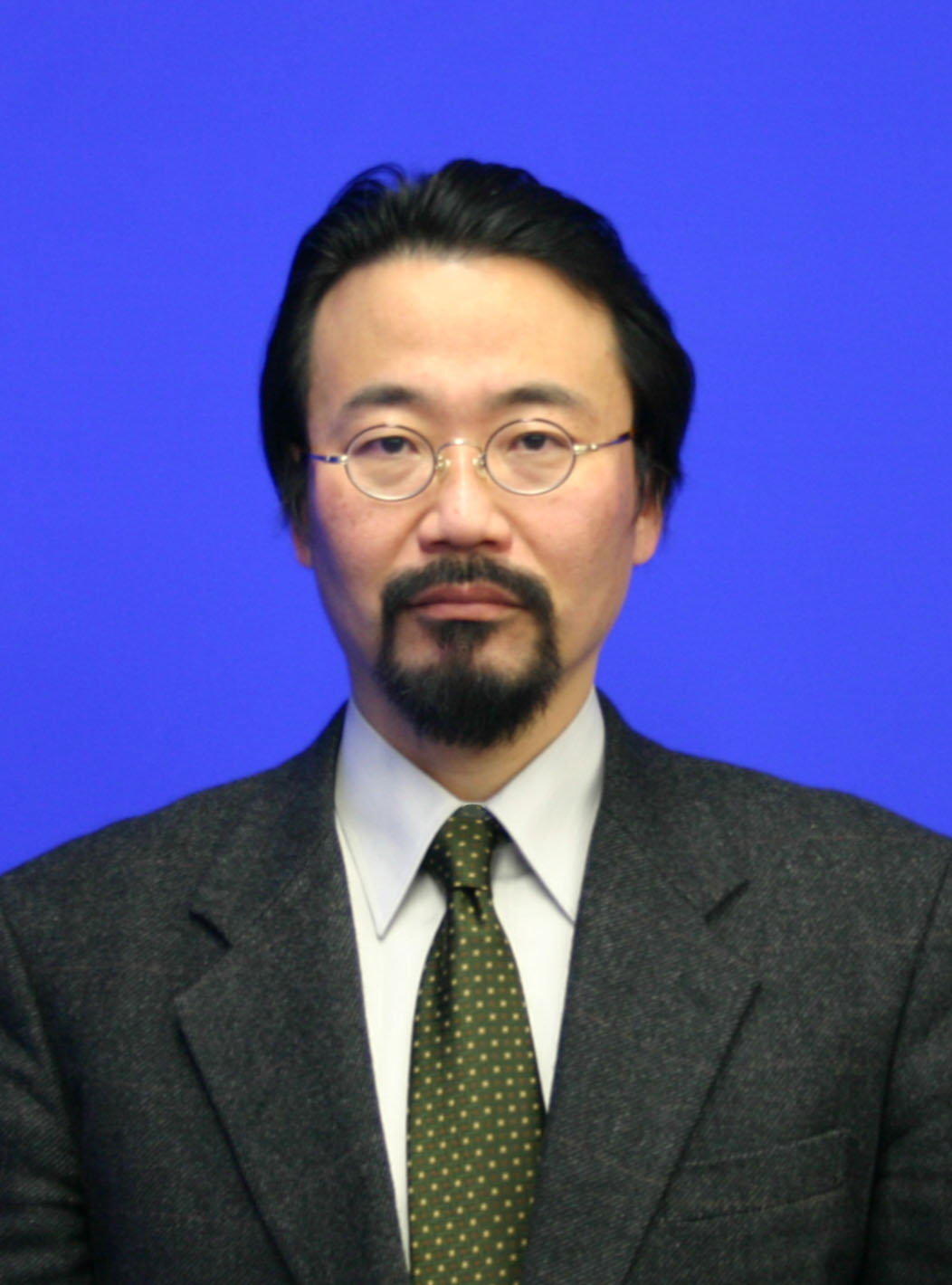 Masaaki Katayama, Nagoya University, Japan
Masaaki Katayama, Nagoya University, Japan
Masaaki Katayama, Prof. of Ecotopia Science Institute, Nagoya University, was born in Kyoto, Japan in 1959. He received the B.S., M.S. and Ph.D. degrees from Osaka University, Japan in 1981, 1983, and 1986, respectively, all in Communication Engineering. After working for Toyohashi University of Technology and Osaka University as a faculty member, in 1992, he joined Nagoya University as an associate professor, and has been a professor since July 2001. He also had been working at the College of Engineering of the University of Michigan from 1995 to 1996 as a visiting scholar. His current research interests are on the physical and media-access layers of radio communication systems. His current research projects include, Smart Grid and Energy Management Systems, Reliable Robust Radio Controls, Cognitive Radio, Power-Line Communications, Visible Light Communications, Next Generation Mobile Communications, and Satellite Communications. Dr. Katayama is a fellow of IEICE, a senior member of IEEE, and a member of Reliability Engineering Association of Japan.
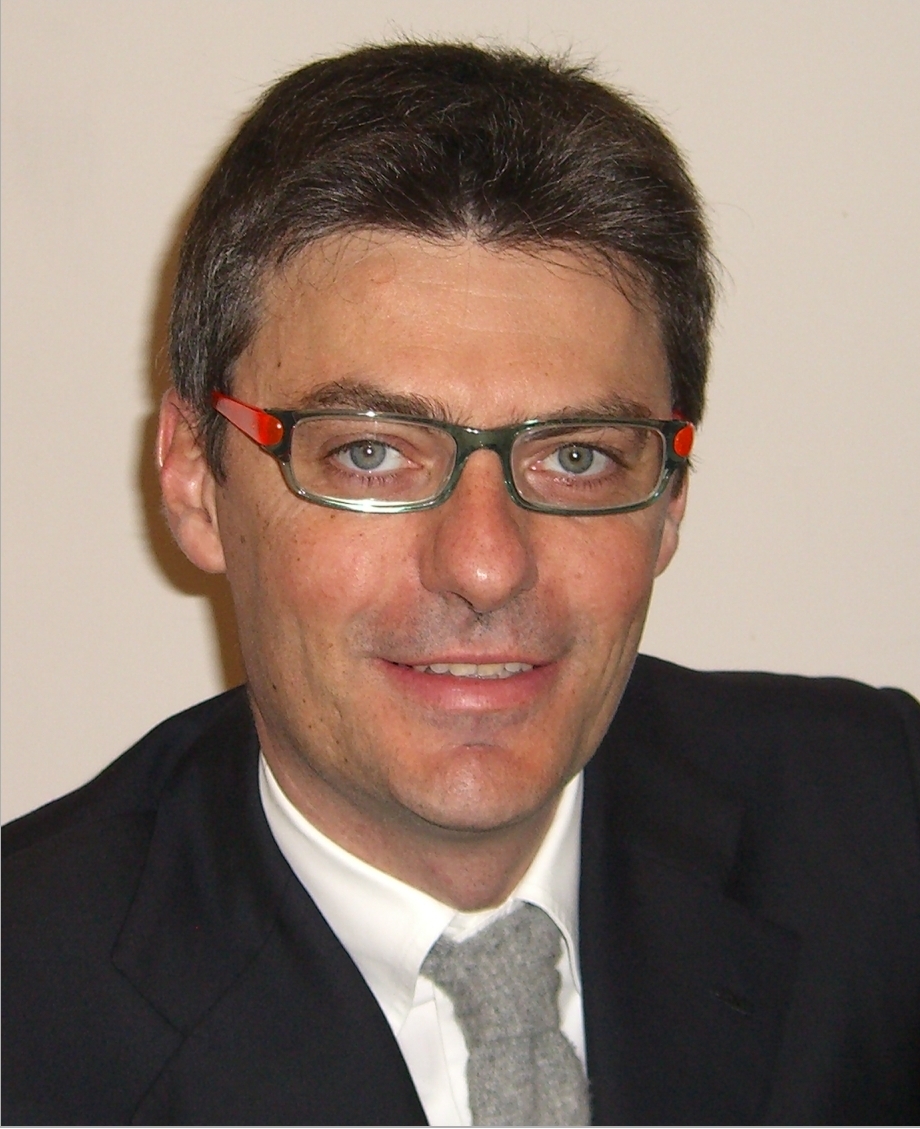 Andrea M. Tonello, University of Udine, Italy
Andrea M. Tonello, University of Udine, Italy
Andrea M. Tonello received the Doctor of Engineering degree in electronics (cum laude), and the Doctor of Research degree in electronics and telecommunications, both from the University of Padova, Italy in 1996 and 2003, respectively. On February 1997, he joined as a Member of Technical Staff, Bell Labs – Lucent Technologies, where he worked on the development of baseband algorithms for cellular handsets, first in Holmdel, NJ, and then within the Philips/Lucent Consumer Products Division in Piscataway, NJ. From September 1997 to December 2002, he has been with the Bell Labs Advanced Wireless Technology Laboratory, Whippany, NJ. He was promoted in 2002 to Technical Manager, and was appointed Managing Director of Bell Labs, Italy. He conducted research on wireless systems, on air interface design and performance analysis. He was involved in the standardization of the evolution of 2G and 3G cellular technology.
In January 2003, he joined the Dipartimento di Ingegneria Elettrica, Gestionale, e Meccanica (DIEGM) of the University of Udine, Italy, where he is an Aggregate Professor and founder of the Wireless and Power Line Communication Lab. His research focuses on next generation wireless systems, infomobility and vehicular networks, power line communications including in-home and smart grids. He has been involved in several European coordinated actions through FP5-FP7 EU funded projects and within the Institutional Human Resources Strategy Group that aims at implementing the European charter for researchers and the code of conduct of the recruitment of researchers.
Dr. Tonello received several awards among which a Lucent Bell Labs Recognition of Excellence award in 2003, the 2007 Eurasip Journal on Advances in Signal Processing Best Paper Award. He co-authored the papers that received the best student paper awards at the IEEE International Symposium on Power Line Communications (ISPLC) in 2010 and in 2011, and the IEEE Vehicular Technology Conference 2011 Spring MIMO track best paper award. He was awarded a Distinguished Visiting Fellowship from the Royal Academy of Engineering, UK, in 2010.
He held chairing positions at conferences and in particular he was the TPC Co-chair of IEEE ISPLC 2007, the Chair of the Workshop on Power Line Communications 2009, and the General Chair of IEEE ISPLC 2011.
He serves as an Associate Editor for the IEEE Transactions on Vehicular Technology, and he is in the editorial board of ISRN Communications and Networking. He is the Vice-chair of the IEEE Communications Society Technical Committee on Power Line Communications.
Web site:
www.diegm.uniud.it/tonello
P4C: Power networks for communications engineers
PDF version can be found here.
October 17, 2011 (2pm - 6pm)
Frede Blaabjerg, Aalborg University, Denmark
The goal of the P4C tutorial is to explain how the power network works, and especially highlight the smart grid challenges which are faced today.
Background and content
Environmental concerns and various benefits of small on site generation have resulted in significant penetration of dispersed generation in many distribution systems. Such a system demands for a much more intelligent grid structure (Smart-grid) and results in various operational problems like balancing, stability and reliability problems in the network together with power quality. In addition, various aspects of islanded operation of distribution systems with dispersed generation are also issues to consider.
Following topics are covered in the tutorial:
-
The energy demand and supply of power
-
The nature of the dispersed generation (Wind, Photovoltaic, others)
-
Basic operation and protection of the grid (classical, dispersed)
-
Power quality issues
-
Grid reconnection requirements
-
Synchronization and island detection
-
Control and operation of dispersed generation grid connected and islanded scenario
-
Communication demands now and in the future
-
Future trends, micro-grid & smart grid
Who should attend
Especially communication engineers who works on the power issues that arise in a smart grid context, and hence lead to challenges/needs for communication networks.
Bio
 Frede Blaabjerg, Aalborg University, Denmark
Frede Blaabjerg, Aalborg University, Denmark
Frede Blaabjerg was employed at ABB-Scandia, Randers, from 1987-1988. During 1988-1992 he was a PhD. student at Aalborg University. He became an Assistant Professor in 1992 at Aalborg University, in 1996 Associate Professor and in 1998 full professor in power electronics and drives the same place. In 2000 he was visiting professor in University of Padova, Italy as well as he became part-time programme research leader at Research Center Risoe in wind turbines. In the period of 2006-2010 he was the dean of the faculty of Engineering, Science and Medicine at Aalborg University, Denmark. In 2002 he was visiting professor at Curtin University of Technology, Perth, Australia as well as he became visiting professor for Zhejiang University, China.
His research areas are in power electronics, static power converters, ac drives, switched reluctance drives, modelling, characterization of power semiconductor devices and simulation, power quality, wind turbines, custom power systems and green power inverter. He has been involved many research projects with the industry. Among them has been the Danfoss Professor Programme in Power Electronics and Drives. He is the author or co-author of more than 600 publications in his research fields including the book “Control in Power Electronics” (Eds. M.P. Kazmierkowski, R. Krishnan, F. Blaabjerg) 2002, Academic Press. Out of those +400 papers are registered in IEEExplore with more than 150 ISI-registered journal papers. He is IEEE Fellow since 2003.
Dr. Blaabjerg is a member of the European Power Electronics and Drives Association and the IEEE Industry Applications Society Industrial Drives Committee. He is also a member of the Industry Power Converter Committee and the Power Electronics Devices and Components Committee in the IEEE Industry Application Society. He is associated editor of the IEEE Transactions on Industry Applications, IEEE Transactions on Power Electronics, Journal of Power Electronics and of the Danish journal Elteknik. From 2006 he has been Editor in Chief of the IEEE Transactions on Power Electronics as well as Distinguished lecturer for the IEEE Power Electronics Society from 2005 to 2007. It is followed up as Distinguished lecturer for the IEEE Industry Applications Society from 2010 to 2012.
C4P: Communication Networks for Power Engineers
PDF can be found here.
October 17, 2011 (2pm - 6pm)
Fabrizio Granelli (University of Trento, Italy), Michael Devetsikiotis (North Carolina State, NC, USA), George Michailidis (University of Michigan, MI, USA), Wenye Wang (North Carolina State University, NC, USA)
The goal of the C4P tutorial is to explain how communication networks work and how they can be designed and employed in the Smart Grid setting.
Background and content
The Smart Grid relies critically on communication and interaction among several devices to achieve its goals. In this framework, to enable incremental development of Smart Grid concepts, it is required to exploit the currently available communication technologies, including fiber-optics, and powerline communications, wireless metropolitan and local area networks, wireless sensor networks. Nevertheless, current communication technologies are not designed to completely fulfill the strict requirements of the future smart grid, therefore requiring the development of novel architectures and networking paradigms, aimed at real-time control, information and data exchange to optimize system reliability, agility, asset utilization, and security.
The following topics are covered in the tutorial:
-
The smart grid: a communications perspective and vision for the future
-
A taxonomy of the state-of-the-art in communications for the smart grid:
-
Wired communications: fiber-optics, powerline
-
Wireless communications: WiMAX, WiFi, UWB, ZigBee, 3/4G, WSN
-
Open issues and potential solutions:
-
Network design for smart grid communications
-
Communications infrastructure for electric vehicles
-
Network reliability for smart metering and renewable sources
-
Smart grid control and pricing for distribution and micro grids
-
Security issues, communication protocols and standards
-
Case Study: FREEDM communication architectecture
-
FREEDM overview , reliable and secure communiccations
-
SCADA protocols
-
Case study, measurements, lessons, and open questions
Who should attend
Especially power engineers who work in the Smart Grid context, and required to understand the current status of communication technology and how it fits the challenges and needs of the emerging Smart Grid.
Bios
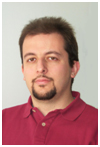 Fabrizio Granelli
Fabrizio Granelli received the «Laurea» (M.Sc.) degree in Electronic Engineering from the University of Genoa, Italy, in 1997, with a thesis on video coding, awarded with the TELECOM Italy prize, and the Ph.D. in Telecommunications from the same university, in 2001. Since 2000 he is carrying on his research and didactical activities (currently Associate Professor in Telecommunications) at the Dept. of Information Engineering and Computer Science – University of Trento (Italy). In August 2004 and August 2010, he was visiting professor at the State University of Campinas (Brasil). He is author or co-author of more than 100 papers in the field of communications and networking published in international journals, books and conferences, and he is member of the Technical Committee of the International Conference on Communications (from 2003 to 2007) and Global Telecommunications Conference (GLOBECOM2003 and GLOBECOM2004). Dr. Granelli is guest-editor of ACM Journal on Mobile Networks and Applications, special issues on “WLAN Optimization at the MAC and Network Levels” and “Ultra-Wide Band for Sensor Networks”, and Co-Chair of 10th IEEE Workshop on Computer-Aided Modeling, Analysis, and Design of Communication Links and Networks (CAMAD’04). Dr. Granelli is General Vice-Chair of the First International Conference on Wireless Internet (WICON’05) and General Chair of the 11th and 15th IEEE Workshop on Computer-Aided Modeling, Analysis, and Design of Communication Links and Networks (CAMAD’06 and CAMAD’10). He is Co-Chair of GLOBECOM 2007-2009 Symposia on “Communications QoS, Reliability and Performance Modeling”. He is Senior Member of IEEE, former Chair of IEEE ComSoc Technical Committee on Communication Systems Integration and Modeling (CSIM) and Associate Editor of IEEE Communications Letters, IEEE Communications Surveys and Tutorials, International Journal on Communication Systems, Journal of Wireless Communications and Networking.
 Michael Devetsikiotis
Michael Devetsikiotis received the Diploma degree in Electrical Engineering from the Aristotle University of Thessaloniki, Greece, in 1988, and the M.Sc. and Ph.D. degrees in Electrical Engineering from North Carolina State University, Raleigh, in 1990 and 1993, respectively. In October 1993 he joined the Broadband Networks Laboratory at Carleton University, Ottawa, Canada, as a Research Associate. He became an Adjunct Professor in the Systems and Computer Engineering Department, Carleton University, in 1995, an Assistant Professor in 1996 and an Associate Professor in 1998. Since November 2000 he has been with the Department of Electrical and Computer Engineering, North Carolina State University, Raleigh, where he has been a Professor since 2006. His research work has been in the areas of telecommunication systems modeling, performance evaluation, and efficient simulation; traffic characterization and management; and optimization techniques applied to the analysis and design of communication systems. His recent focus has been on the modeling of information networks related to social media and smart grid communications. Michael served as Chairman of the IEEE Communications Society Technical Committee on Communication Systems Integration and Modeling and is now a member of the Communications Society Education Board. He has served as an Associate Editor of the IEEE Communications Letters, and is currently an Area Editor of the ACM Transactions on Modeling and Computer Simulation and a member of the editorial boards of the International Journal of Simulation and Process Modeling, the IEEE Communications Surveys and Tutorials, and the Journal of Internet Engineering. He co-chaired the Next Generation Internet symposium under IEEE ICC 2002 in New York, the High-Speed Networks symposium under IEEE ICC 2004 in Paris, the Quality, Reliability and Performance Modeling (QRPM) symposium under IEEE ICC 2006 in Istanbul, and the Quality, Reliability and Performance for Emerging Network Services symposium under IEEE Globecom 2006 in San Francisco. He served as Workshops Chair for IEEE Globecom 2008 in New Orleans, and co-chair of the workshops on “Enabling the Future Service Oriented Internet” (2007, 2008 and 2009). Michael recently co-chaired the QRPM Symposium under IEEE Globecom 2010, in Miami, and IEEE CAMAD, in Kyoto, Japan. He will co-chair the QRPM symposium at IEEE ICC 2012 in Ottawa, Canada.
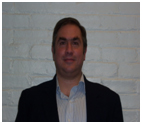 George Michailidis
George Michailidis received his Ph.D. in Mathematics from UCLA in 1996. He was a post-doctoral fellow in the Department of Operations Research at Stanford University from 1996 to 1998. He joined The University of Michigan in 1998, where he is currently a Professor of Statistics, Electrical Engineering & Computer Science. His research interests are in the areas of stochastic network modeling and performance evaluation, queuing analysis and congestion control and statistical modeling and analysis of Internet traffic. George Michailidis is member of the IEEE ComSoc Committee on Smart Grid Communications.
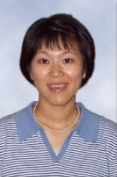 Wenye Wang
Wenye Wang received the B.S. and M.S. degrees from Beijing University of Posts and Telecommunications, Beijing, China. She also received the M.S.E.E. and Ph.D. degree from Georgia Institute of Technology, Atlanta, Georgia in 1999 and 2002, respectively. She is an Associate Professor with the Department of Electrical and Computer Engineering, North Carolina State University. Her research interests are in mobile and secure computing, network topology and architecture, and Smart Grid. Dr. Wang is a recipient of NSF CAREER Award in 2006. She is a senior IEEE member.













